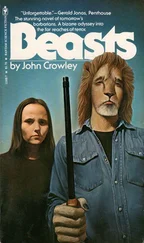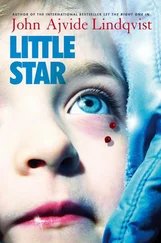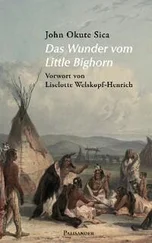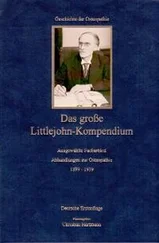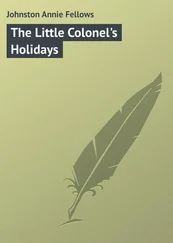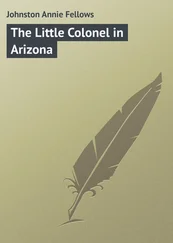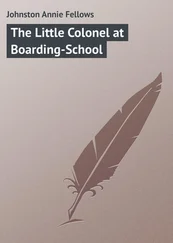“What is the explanation for this?
“The explanation is that the world inhabited by these beings is not the world we inhabit. It is another world entirely, and it is enclosed within this one; it is in a sense a universal retreating mirror image of this one, with a peculiar geography I can only describe as infundibular .” He paused for effect. “I mean by this that the other world is composed of a series of concentric rings, which as one penetrates deeper into the other world, grow larger. The further in you go, the bigger it gets. Each perimeter of this series of concentricities encloses a larger world within, until, at the center point, it is infinite. Or at least very very large.” He drank water again. As always when he began to explain it all, it began to leak away from him; the perfect clarity of it, the just-seizable perfect paradox of it, which sometimes rang like a hell within him, was so difficult— maybe, oh Lord, impossible—to express. The unmoved faces before him waited. “We men, you see, inhabit what is in fact the vastest outermost circle of the converse infundibulum which is the other world. Paracelsus is right: our every movement is accompanied by these beings, but we fail to perceive them not because they are intangible but because, out here, they are too small to be seen!
“Around the inner perimeter of this circle which is our daily world are many, many ways—call them doors—by which we can enter the next smaller, that is larger, circle of their world. Here the inhabitants appear the size of ghost-birds or errant candle-flames. This is our most common experience of them, because it is only through this first perimeter that most people ever pass, if at all. The next-innermost perimeter is smaller, and thus has fewer doors; it is therefore less likely anyone would step through by chance. There, the inhabitants will appear fairy-children or Little People, a manifestation correspondingly less often observed. And so on further within: the vast, inner circles where they grow to full size are so tiny that we step completely over them, constantly, in our daily lives, without knowing we do so, and never enter there at all—though it may be that in the old heroic age, access there was easier, and so we have the many tales of deeds done there. And lastly, the vastest circle, the infinity, the center point—Faëry, ladies and gentlemen, where the heroes ride across endless landscapes and sail sea beyond sea and there is no end to possibility—why that circle is so tiny it has no door at all.”
He sat, spent. “Now.” He put his dead pipe between his teeth. “Before I proceed to certain evidences, certain demonstrations, mathematical and topographical” —he patted a messy pile of papers and place-marked books beside him—“you should know that there are individuals to whom it is given to be able to penetrate at will, or nearly, the small worlds I have discussed. If you require firsthand evidence of the general propositions I have laid down, my daughter Miss Violet Bramble…”
The company, murmuring (it was this they had come for), turned toward where Violet sat in the light of the red-shaded lamp.
The girl was gone.
It was Drinkwater who found her, huddled on the landing of the stairs that led up from the Society’s rooms to a lawyer’s office on the next floor. She didn’t stir as he climbed toward her, only her eyes moved, searching him. When he moved to light the gas above her, she touched his shin: “Don’t.”
“Are you ill?”
“No.”
“Afraid?”
She didn’t answer. He sat down beside her and took her hand. “Now, my child,” he said paternally, hut felt a thrill as though some current ran through her hand to his. “They don’t want to hurt you, you know, they won’t badger you…”
“I am not,” she said slowly, “a circus show.”
“No.” How old could she be, to have to live so—fifteen, sixteen? Closer to her now, he could see that she was weeping softly; big tears formed in the dark pools of her eyes, trembled at the thick lashes, and tumbled one by one down her cheek.
“I feel so sorry for him, He hates to do this to me and yet he does it. It’s because we’re desperate.” She said it quite simply, as though she had said “It’s because we’re English.” She hadn’t released his hand; perhaps she hadn’t noticed it.
“Let me help.” That had sprung to his lips, but he felt any choice about her was anyway beyond him; the two years of vain struggle that lay between the twilight he saw her in the apple tree and now seemed to shrivel into a mote and blow away. He must protect her; he would take her away, somewhere safe, somewhere… She would say nothing further, and he could not; he knew that his well-built life, masoned and furnished over forty careful years, had not weathered the wind of his dissatisfaction: he felt it crumble, the foundations slipped, vast cracks appeared, the whole edifice of it caved in with a long noise he could almost hear. He was kissing the warm salt tears from her cheek.
“Perhaps,” John Drinkwater said to Violet when all their boxes and trunks had been piled in the doorway for the servant to put away, and Dr. Bramble had been installed in a comfortable chair on the wide marmoreal porch, “you’d like to take a turn around the house.”
Wisteria had been trained up the tapering columns of the porch, and their crystalline green leaves, though the summer was young, already curtained the scenes he offered them with his hand, the broad lawn and young plantings, the view to a pavilion, the distant sheet of water arched by a neat classical bridge.
Dr. Bramble declined, already drawing an octavo volume from his pocket. Violet murmured her assent (how demure she must now be, in this great place; she had expected log cabins and red Indians; she really knew very little). She took the arm he offered her—a builder’s strong arm she thought—and they went out across the new lawn, walking a gravel path between stone sphinxes set at intervals to guard the way. (The sphinxes were cut by his Italian stonemason friends, the same who were just then cutting garlands of grapes and queer faces all across the facades of his partner Mouse’s City blocks; they were cut quickly in soft stone that the years would not be kind to, but that was all to come.)
“You must stay on now as long as you like,” Drinkwater said. He had said it in Sherry’s restaurant where he had taken them after the lecture ended inconclusively, when he had first shyly but insistently invited them. He had said it again in the mean and odorous hotel lobby when he came to collect them, and in Grand Central Station beneath the great twinkling zodiac which (Dr. Bramble couldn’t help but notice) ran the wrong way across the night-blue ceiling. And again in the train as she nodded in a doze beneath the silk rosebud which nodded too in its railroad bud-vase.
But how long did she like?
“It’s very kind of you,” she said.
You will live in many houses , Mrs. Underhill had told her. You will wander, and live in many houses . She had wept hearing that, or rather later when she thought of it on trains and boats and in waiting rooms, not knowing how many houses were many or how long it took to live in one. For sure it would take an immensity of time, for since they had left the vicarage in Cheshire six months ago they had lived only in hotels and lodgings, and seemed likely to go on doing so; how long?
As in a drill, they marched up one neat stone path, turned right, marched along another. Drinkwater made an introductory noise to announce he was about to break the silence they had fallen into.
“I’m so interested in these, well, experiences of yours,” he said. He raised an honest palm. “I don’t mean to pry, or upset you if it upsets you to talk of them. I’m just very interested.”
Читать дальше

